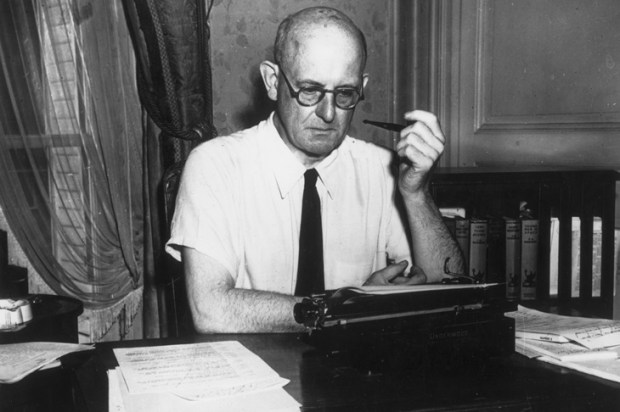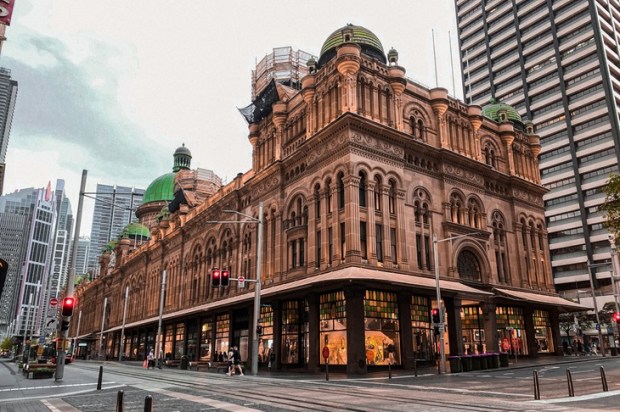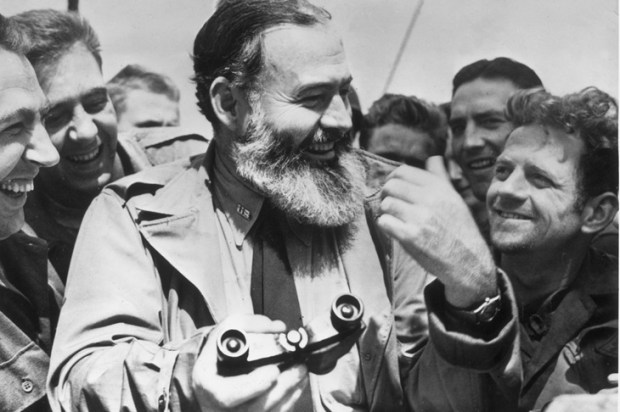By casting our minds back to Rome, one orients themselves in a place of marching legions, splendorous festivals, and swarming marketplaces against the backdrop of marble temples under a balmy Mediterranean sky. Stretching from Britain’s Atlantic coast down to North Africa and all the way east to Mesopotamia, Rome grew into the monolithic empire which dominated most of the globe and did so for hundreds of years. And yet, it lies in ruin. One is reminded of Shelley’s poem Ozymandias. In any case, by imagining Rome in the context of history, it demonstrates the potential of what civilisation could look like. Considering this, one may find enclosed in this knowledge an intriguing consternation, both at the dismantling of such an admirable empire and the witnessing of the hallmarks of its downfall in our own.
This time last year, the re-emergence of Ancient Rome into the collective conscience came up as a social media trend in which girls would ask their boyfriends how often they thought about the Roman Empire. Soon after, a survey was conducted which found 14 per cent of men aged 18 and above thought about the Roman Empire once a month. Some of the involuntary contestants said they contemplated Rome daily. These numbers, one suspects, are growing.
Modern intellectuals say the Roman Empire trend reflects the anxiety felt by young men in modern society. Buzzwords such as ‘toxic masculinity’ invariably emerge. It is precisely this post-modern sociological verdict that leads to young men feeling at odds with the world around them as they grapple with their own nature. As a result, men ‘gravitate to a society that glorified male strength’, as one psychology professor wrote when the social media trend emerged. For him, the central matter at hand in the current cultural era is that masculinity was being examined, questioned, and scrutinised, and therefore young men were looking to ‘hold onto something durable’.
The concept of durability and to hold onto tried and tested methods and traditions in a cultural context is to protect oneself from the psychoses that come with post-modern progressivism. The tampering of previously unquestioned fundamentals such as gender has undeniably caused more harm than good. Rome, therefore, is more easily comprehensible for its unapologetic and rigid societal governance as instructed by the divines. It cannot be that the fascination with Rome can be simply and conveniently ascribed to men hankering for a society which ‘glorified male strength’ – this kind of postmodern reductionism is the kind of myopic view which hardly touches the grander ideal. Rather than a society dominated by men, it is the ache for order in a relatively chaotic world, for a time where men not only conquered their enemies but lived in accordance with their nature.
Wherever they went, the Romans left traces of themselves. Accordingly, one cannot learn about history or science without the mention of Rome, and not only these things, but literature, art, and entertainment as well. It is no surprise then that the imaginative reminiscence, one might say, for Ancient Rome has expressed itself among the youth of today, emerging as a social phenomenon very recently. In fact, Ancient Rome sparked the Renaissance which brought the re-emergence of the great empire into the psyche, igniting new, augmented methods of thinking. Centuries after the collapse of Rome, the lonely, wandering ancient ghost of Classical Antiquity was partially reanimated and a retrospectively deconstructed, setting off an explosion of art, culture and philosophy. This rebirth began in the imagination and, as the dust fell from the long-lost marble statues, the discovery of the origins of civilisation sparked the fire which brought vision and ingenuity back into the light.
Comparisons can be drawn between the 500 years after the fall of the Roman Empire, known as the Dark Ages, which ended with the Renaissance, and the 500 years after the Renaissance which ended with the sack of Rome by Charles V in 1527. In simple terms, a cyclical revolution is starting again. In recent history, the Belle Époque was the beautiful, lively, optimistic and prosperous gilded age that preceded the harrowing first world war and the subsequent century of neuroses and cynicism. It is no doubt, then, that squalor supersedes prosperity, that good times create weak men.
Since the ancient world is shrouded in myth, despite our knowing a great deal of history – the Battle of Cannae, for example – a poetic veil still swirls about the ruins. Perhaps, therefore, it is the perfect playground for the imagination. The irony is, with the inexhaustive piles of information at our fingertips, our pursuit for wisdom has been stunted and things are less implicit than they are explicit. It is almost as if the insurmountable volume of knowledge available to us is too much to bear. Or perhaps it is a question of virtue. Doctrine and dogma have bubbled up once again and has imposed itself on modern youth, this time in a more insidious manner. It has been likened to a superstitious and cultish organism feasting bit by bit on a weakened and insipid society that has killed God and replaced him with the whims of a certain individual or subgroup. The question is, are we at the brink of another Dark Ages or Renaissance?
Born in myth and ascending to an unprecedented level of unrivalled distinction, only to be slain by the relentlessness of barbarism, Rome crumbled under the weight of itself. It became exhausted of its own greatness. The decadence and over-extension of the empire was brought down by centuries of infighting and power struggles. In his gargantuan six-volume Decline and Fall of the Roman Empire, written, incidentally, in 1776, Gibbon said during its declension Rome became a place where ‘bizarreness masqueraded as creativity’, the strange defect of immoderate greatness. One could say we are witnessing that same depravity and degeneracy today in the celebration and galas over sexual identity and its parasitic incursion into the classrooms. Our society and culture may have different aesthetic characteristics, but there are deeper similarities which matter.
Now, in the age of information, with the rise of media and technology, nothing can be left to the imagination. One need only to turn their eyes and ears to the latest pop music videos or fashion trends. The things that were once held in high regard have become obscure and peripheral. Advertisements and distractions fight for your attention, and the films and television series of the day have largely been commandeered by some ulterior motive. The news, for the most part, is no longer impartial or informative, but salacious and propagandising. The West is no longer as guided or self-assured as it once was. The culture has diluted itself for the sake of inclusion but has brought itself to the point of faintness. At every turn, tradition is attacked and degraded as Western leaders continue to fail on their election promises while holding the gates open for the barbarians with only the outcome of the next election in mind. During the death throes of the Roman Empire, those seeking power merely paid off the legions to carry out their dirty work. The Romans may seem distant and far removed from ourselves, but only the smaller details of how we live have changed.
The modern attitude of focusing less on longevity and durability and more on convenience and cheapness is illustrated perfectly in band-aiding a problem. By merely filling in the figurative potholes – while Roman roads have withstood centuries – points to a strange and pervasive cynicism grounded in the ever-present knowledge of our own transience. For better or worse, the sense of the transcendent and divine has been replaced with science and technology. While Ancient Rome is aptly named, for it is a bygone civilisation, it carries on in its legacy of what it left behind and, arguably, lives on within us both in a material and spiritual way.
The curiosity and allure for Rome is also intertwined with a sense of frustration, for it gave up its chief strengths which spelled its downfall – unity, tradition, virtue – and replaced them with decadence, debauchery, and, worst of all, indifference. For everything good has the potential for pathology proportionate to its goodness. What we do know of Rome forms our picture of it, and one thing we know for certain is that they were sure of themselves. They were willing to die for their cause.
Interestingly, the Romans were always concerned about the fundamental morality of their actions. The Republic never fought an aggressive war, the Senate always deemed it a defensive and justified action before its armies set out. This attitude can be attributed to their eclectic version of Stoicism which set the mood of governance for nearly all the successors of Alexander the Great. Therefore, Ancient Rome is in the same imaginative category as medieval chivalry and knight errantry in that they represent an adventurous and virtuous spirit in the Greco-Roman sense. For the medieval knight, fortitude, honour, and justice, the cardinal values with Platonic origins, emerged from ancient philosophy and attached themselves to stories and parables which have carried down through the centuries. Such stories include Sir Gawain and the Green Knight and the legend of St George and the Dragon. The 17th Century metafictional literary masterpiece of the valiant Don Quixote, with its incalculable influence on all subsequent literature, ensured the spirit of the noble knight lived on within our imagination.
Overall, for more than two hundred years the Roman Empire was stable and peaceful during a period known as Pax Romana. From the reign of the first emperor Augustus to the disasters of the Third Century, the empire was wide and far-reaching and unified under the golden eagle. In Bertrand Russell’s remarkable History of Western Philosophy, this period was one of ‘happiness’ for the administration of the Roman provinces were, at last, ‘organised with some regard to the welfare of the population’. Even poets praised Augustus, and he was officially deified after his death. According to Suetonius, the first emperor said he found Rome a city of bricks and ‘left it a city of marble’. ‘But,’ Russell wrote, ‘some savour had gone out of life, since safety had been preferred to adventure.’
Ancient Rome is the embodiment of the spirit of adventure and the yield that can be enjoyed because of the huge undertaking of exploration and the conquest of uncertainty. In Jordan Peterson’s interpretation of the Biblical story of Abraham, God came to Abram (who becomes Abraham) as the ‘spirit of adventure’. By removing himself from his father’s house voluntarily, Abraham leaves his zone of comfort. Peterson characterises this action as moving away from ‘infantile materialistic satiation’. In doing so, one blesses themselves by unshackling from self-doubt. The next thing to occur is people notice, and your name becomes ‘renowned’ and carries more of a symbolic weight and will be upheld with regard in a ‘justifiable manner’. The third thing to occur is the establishment of something permanent. For Abraham this was dynasty – he became the father of nations, and therefore everyone benefitted. ‘It’s the answer to the selfish gene,’ Peterson said. After all, it was Jesus Christ who founded the Roman Catholic Church.
The French Renaissance philosopher Michel de Montaigne wrote that he had knowledge of the affairs of Rome before he learned of his own family, he had learned of the Capitol before he did the Louvre, the Tiber before the Seine. ‘The qualities and fortunes of Lucullus, Metellus, and Scipio have ever run more in my head than those of any of my own country; they are all dead; so is my father as absolutely dead as they, and is removed as far from me and life in eighteen years as they are in sixteen hundred… I speak most affectionately of my friends when they can no longer know it. I have had a hundred quarrels in defending Pompey and for the cause of Brutus; this acquaintance yet continues betwixt us; we have no other hold even on present things but by fancy.’ The flourishing, free, and just state of Ancient Rome impassioned and interested the French essayist in that ‘by nature, or through error of fancy, that the sight of places which we know to have been frequented and inhabited by persons whose memories are recommended in story, moves us’.
It is a strange nostalgia one holds for an ancient civilisation. The decayed temples of Ancient Rome still stand with an echo of pride and strength. That is, those that remain. Indeed, Montaigne echoed the great Roman orator and statesman Cicero who declared that, ‘…so great a power of reminiscence resides in places; and that truly in this city infinite, for which way soever we go, we find the traces of some story.’ Such are the stories of our imagination. There is something about these fables that lives within us. Perhaps it is the inner call of adventure which beckons us to find out why. For as Sallust, the Roman pagan philosopher, said, ‘Myth never happened, but always is.’

























